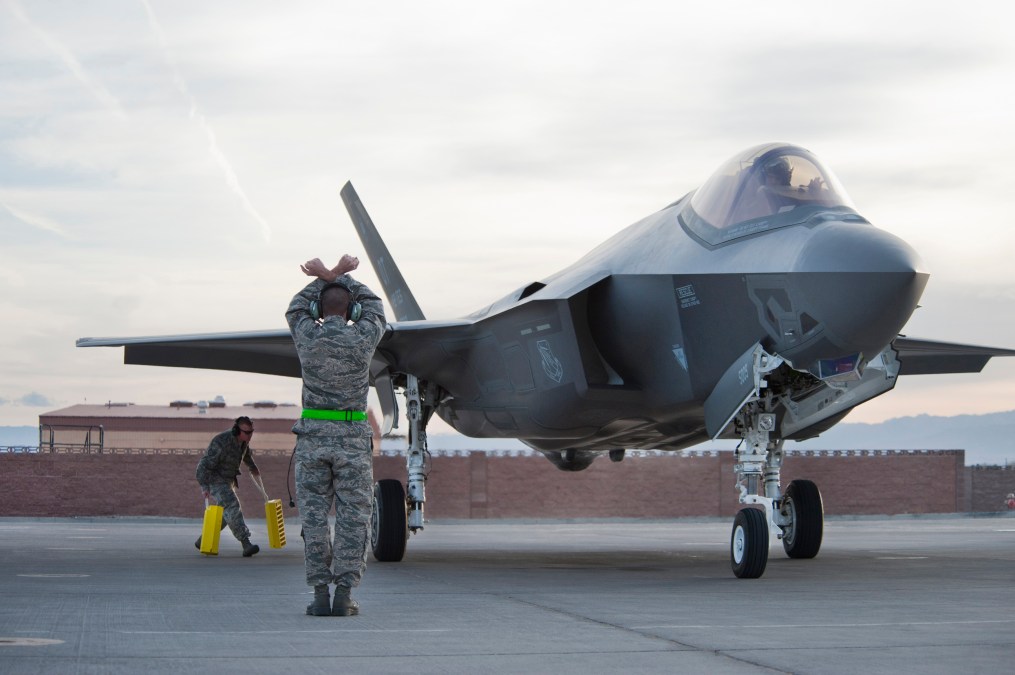Air Force’s March pitch day is a bid to ‘move at the speed of relevance’

Bucking the traditional submit-and-review-in-private process, the Air Force is gearing up to award small business grants, on the spot, through a pitch competition early next month.
It’s the Air Force’s latest plan to “move at the speed of relevance” and adopt “modern business practices,” Ryan Helbach, chief intrapreneur at the Air Force Research Laboratory, told FedScoop in an interview. “If we just stand still we’re going to get run over.”
Here’s what relevance looks like: a day-long pitch event during which 59 companies working on 60 solutions in the areas of digital tech, special forces or command, control, communication, intelligence and networks (C3I&N) will deliver pitches to respective Air Force program offices and subject matter experts. If the Air Force likes a pitch, it’ll give the company a one-page contract and make the first payment — selected companies can get up to $158,000 paid out on the spot for a five-month customer discovery sprint.
The Small Business Innovation Research (SBIR) grant program, which has been around since the 1980s, allows participating federal agencies to encourage research and development at small businesses by giving money to specific projects. The funding comes as a grant — companies don’t have to give up any equity. SBIR runs in three stages, with increasing amounts of cash on the line at each stage.
But while SBIR sounds like a great deal for startups, the Air Force has had some trouble getting a wide variety of companies to apply. That could be because of cumbersome application requirements — a traditional application for and Air Force SBIR grant includes a 20 page white paper, Helbach said — or because of the lengthy review process. Helbach told FedScoop the white paper evaluation stage traditionally takes around 90 days, and, if the company is successful, the contracting phase can take another 90 days. Getting payment can take even longer.
So with the pitch day, “what we want to highlight is that we can move very quickly,” Helbach said.
The effort is aided by the fact that, from a legal perspective, the SBIR program is “tremendously flexible.” But it did take some cultural shifts to get this initiative off the ground, Helbach admits. Streamlining the contract companies have to sign down to a single page was huge, for example, as was empowering the people who review SBIR applications to make quick judgments.
The pitch day is part of a larger ecosystem of initiatives at the Air Force that aim to make the military institution more startup-friendly. In fact, Helbach says, the idea grew out of the Air Force’s accelerator partnership with TechStars, now in its second year. The creators of that program realized that, for all its value in introducing the selected startups to government, the Air Force still lacked a way to quickly enter contracting relationships with these startups. SBIR pitch day is one attempt to fill this void, and Helbach hinted that there’s more coming.
“This is really just the first step,” Helbach said. “We need to adapt our business practices to the world that’s around us.”






